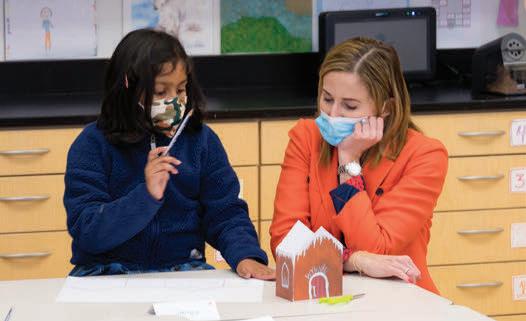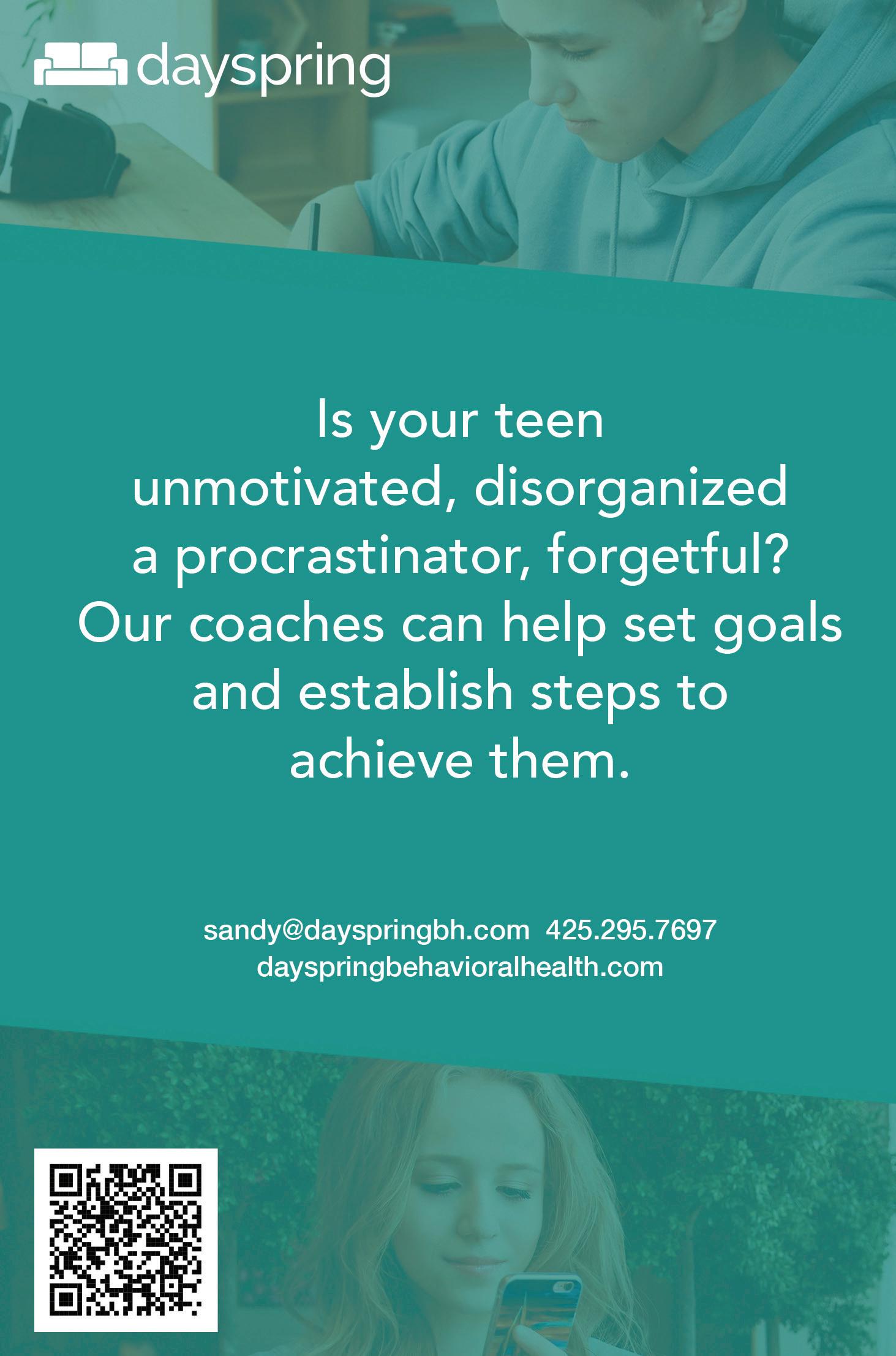
4 minute read
TOOLBOX
What every parent needs to have on hand
Does my child have ADHD?
Here are some signs that you should talk to your pediatrician
by DR. SUSANNA BLOCK of KAISER PERMANENTE
We’re back in school and so excited that our 5- to 11-yearolds can now be vaccinated
against COVID-19. Kids have settled into school with masking and social distancing. We are also bringing back after-school activities. While for some children the transition has been smooth, others are having difficulty with concentration, restlessness and worry. Those behaviors can be symptoms of Attention-Deficit/Hyperactivity Disorder (ADHD) or they can have other causes. Let’s talk about how ADHD is identified and treated.
As always, thank you so much for your great questions. Keep them coming. (Got a question for Dr. Block? Send it to jhanson@seattleschild.com.)
Does my child have ADHD, or is it something else?
This is a great question from a reader. Let’s talk about it.
At the beginning of the school year, it seemed like all our kids were a little amped up with excitement and nervousness. We are now reacquainted with in-person school and after-school activity routines. What about the child who is still struggling with attention, performance in school or impulsive behavior? If you are asking yourself if this could be something more, you’re not the only one. We’re seeing increased requests for ADHD screenings for school-aged children. Early diagnosis and treatment can make a big difference, so recognizing possible ADHD is important.
Attention-Deficit/ Hyperactivity Disorder
Let’s take a minute to talk about ADHD (Attention-Deficit/Hyperactivity Disorder). According to the American Academy of Pediatrics, approximately 9% of children have ADHD, and it is twice as likely to be diagnosed in boys as in girls. ADHD is considered a chronic condition of the brain. Children with ADHD have difficulty controlling their behavior and difficulty paying attention in school, have challenges getting along with other children, and are often impulsive. This is not the occasional outburst but rather a pattern of chronic behavior that impacts their ability to live regular lives.
Children with ADHD have behavior challenges that fall into three categories, although many children have a combination of behaviors: Inattentive: These children have a difficult time paying attention, appear to be daydreaming and have challenges organizing themselves.
Hyperactivity: These children are in constant motion and have a very hard time sitting still.
Impulsivity: These children are noted to be very impulsive. They frequently interrupt, have a hard time taking turns and have impulsive behaviors, i.e., they might run into the street.
If I suspect my child has ADHD, what are the next steps?
If you notice your child having these

June 27 – August 5
Age 3 – Grade 12
Outdoor Adventures ● Arts & Crafts ● Creative Writing & Journalism ● Fun & Community




Seattle's Child_12-15-21.indd 1 12/15/21 12:44 PM

«ToolBox
CONTINUED
impulsive, hyperactive or inattentive behaviors on a regular basis for more than six months and the behaviors are impacting their success in school and at home, talk to your healthcare provider. Often teachers are the first to notice these behaviors and will let parents know.
It is important that your child be seen by their provider in person. A physical exam and time for your provider to talk to you and your child are important to be sure that there are no other reasons for the behavior difficulties. Your provider will then ask you and your child’s teacher to fill out an ADHD behavior assessment. Your child may also be screened for other things, including anxiety and depression.
ADHD treatment
ADHD treatment is individual, but it is important to have a longterm management plan with the goal of targeted behaviors. This could include better schoolwork, improved relationships, improved self-esteem and safer behavior. It is important that the goals be realistic and observable. It is also important to have close follow-up and ongoing monitoring. Education about ADHD and parent training in behavior management is helpful. Some patients and families benefit from individual and family counseling. Medication may also be part of the treatment plan. This is something you will discuss with your provider.
Will my child outgrow ADHD?
Most people with ADHD will have it into adulthood. By learning organizational skills, how to structure their environment, and on some occasions continuing medication, adults with ADHD can do well. I might say that for many fields, having high-energy behavior is a plus.
What if it’s not ADHD?
During your evaluation, the provider will check your child for symptoms that do not fit ADHD. Sometimes other disorders such as mood disorders (depression or anxiety), learning disorders, sleep problems and certain types of seizures can have some symptoms that overlap with ADHD. It is also important to be sure there is nothing else going on, including bullying at school or substance use.
Working with your healthcare provider and your child’s teacher is the best way to be sure you have the correct diagnosis.





